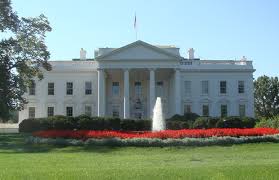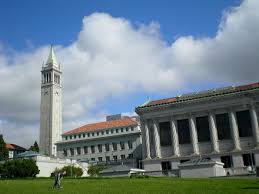 I've always eaten lots of bananas. Call it an atativistic sentimentality about our simian ancestors, call it what you will, but I like bananas. Loaded with potassium, which is essential for muscle contraction. I just ate one, a diminutive yellow number with a somewhat tasteless core. Not much like the bananas of my youth, which were big yellow jobs with creamy, sweet centers. Made the whole lunch bag smell like banana.
I've always eaten lots of bananas. Call it an atativistic sentimentality about our simian ancestors, call it what you will, but I like bananas. Loaded with potassium, which is essential for muscle contraction. I just ate one, a diminutive yellow number with a somewhat tasteless core. Not much like the bananas of my youth, which were big yellow jobs with creamy, sweet centers. Made the whole lunch bag smell like banana.
January 09, 2009
Yes, We Have No Bananas
Posted by
Waldenswimmer
at
9:36:00 AM
0
comments
![]()
Labels: Banana Republic
January 08, 2009
White House for Sale

I don't really know if there's an individual American citizen eliglible for the office of President who is actually capable, from the standpoint of education, experience and personal attributes, of leading the nation out of the economic morass into which it has sunk. The big problem for Barack Obama is the two four-year terms of George W. Bush may have been way too much for the country to survive. I realize that there are those Bush apologists who will insist, along with Bush himself, that the President was simply an innocent bystander with respect to the various disasters that occurred during his tenure. For example, Ann Coulter recently attacked those who attack Bush for suggesting that the famous August 2001 PDB actually warned Bush that "Bin Laden was determined to attack within the U.S.," the way the PDB is titled. The leggy political satirist, blond hair flying, argued on her website that the PDB was the sort of thing a grade schooler would pull together from Google cites in a last minute effort to meet a term paper deadline.
Nevertheless, FBI information since that time indicates patterns of suspicious activity in this country consistent with preparations for hijackings or other types of attacks, including recent surveillance of federal buildings in New York.
Posted by
Waldenswimmer
at
7:20:00 AM
0
comments
![]()
Labels: American economy
January 06, 2009
The Rotary Club & Other Espionage Agencies
HH: So what do you want, what do you think Israel ought to do?
GG: Well, I think that, for one thing, I think that real negotiations need to ensue, and I think those can only happen with a powerful and devoted mediator, which probably is a role that only the United States can play. So I think the Israelis need to be a lot more willing to make concessions than they’ve been in the past, and I also think that doing things like expanding settlements in the West Bank and blockading the Gazans to the point where they can’t even get nutrition and medical needs for their children are things that clearly harm their own interests, and make the conflict worse. I think stopping settlements, making concessions in the West Bank, and giving the Gazans more of a decent life so they don’t think it’s worthwhile to blow themselves up and shoot rockets at their oppressors is a really good first step.
I have to admit this sounds very nice: let's talk. And what shall we talk about? Well, one item that might be on the agenda would concern the 7,200 rockets that Hamas has fired at Ashkelon, Sderot and other southern Israeli cities during the last 5 years. These rockets were fired at Israel with the intention of killing anyone near their point of landing; this sort of attack represents the most indiscriminate form of civilian targeting you can imagine. That's inconvenient for Mr. Greenwald, and for the liberal view generally, but they have comebacks. What about those illegal settlements in the West Bank? Well, Hamas is not in power in the West Bank; they were elected in Gaza, and it is from Gaza that the rockets are launched. So can we focus on that? And why does Hamas fire rockets at Israel? Because it denies Israel's right to exist. This is another inconvenient truth for the modern American liberal view of Israel. One nasty habit of conservatives, including even the much-maligned Ann Coulter, is that they tend to read source documents. This causes all kinds of havoc for the feel-good bromides of the liberal position. The Hamas Charter of 1988, after menacingly warning the Freemasons, Lions Club and Rotary Club that they're on to their role as Zionist espionage agencies (some stuff you just can't make up), lays it out:
Posted by
Waldenswimmer
at
3:06:00 PM
0
comments
![]()
Labels: US - Israel
My Peeps Come of Age
 In that day and age at Berkeley there was, in truth, a kind of revulsion at the practical demands of everyday living. Fraternities were in sharp decline because they were seen as institutions of outmoded values (connections, wealth, Old Boy networks), and the more free-form aspirations of the Information Age were taking root. Not many of my contemporaries really aspired to make it as Organization Men. Of course, the downside of such a conceit is that organizations have inherent power not generally available to the solo flyer. I think this accounts, in some ways, for the ascendancy of such strange "leaders" as George W. Bush and Karl Rove: the field of "leadership" was to a large extent abandoned by what you might call the intellectual elite.
In that day and age at Berkeley there was, in truth, a kind of revulsion at the practical demands of everyday living. Fraternities were in sharp decline because they were seen as institutions of outmoded values (connections, wealth, Old Boy networks), and the more free-form aspirations of the Information Age were taking root. Not many of my contemporaries really aspired to make it as Organization Men. Of course, the downside of such a conceit is that organizations have inherent power not generally available to the solo flyer. I think this accounts, in some ways, for the ascendancy of such strange "leaders" as George W. Bush and Karl Rove: the field of "leadership" was to a large extent abandoned by what you might call the intellectual elite.
Posted by
Waldenswimmer
at
9:32:00 AM
0
comments
![]()
Labels: American economy
January 05, 2009
My Peeps, An Intro

As the aleatory processes of the Universe would have it, I attended the University of California, Berkeley campus, during the years 1966 through 1970. I sometimes free-ride on the modern cachet of this credential; that is to say, modern American kids who want to do likewise, those frenetic and obsessive grinds, look upon Berkeley as some sort of Holy Grail, and so my membership among its multitudinous alumnae is looked upon as something of a singular achievement. In truth, I do little to dissuade them from this delusion. Way back when, when California was a far less populous state and comprised mainly of Anglo-Saxon liberal arts majors, it really wasn't all that big a deal. Berkeley was certainly nothing special as far as a place to get an undergraduate degree. A professor actually interested in pedagogy was immediately marked by his peers as a scholastic mediocrity. An award for excellence in teaching was virtually certain to get a prof knocked off the tenure track.
I wore every conceivable pin
Even went to the socialist meetings
Learned all the old union hymns
But I've grown older and wiser
And that's why I'm turning you in
So love me, love me, love me, I'm a liberal.
Posted by
Waldenswimmer
at
9:15:00 AM
0
comments
![]()


